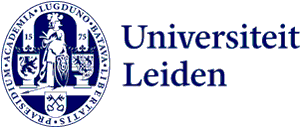
Europa Lecture: Paying tribute to those who apply European regulations at the national level
The tenth Europa Lecture was delivered by Corinna Wissels, State Councillor at the Administrative Jurisdiction Division of the Dutch Council of State, deputy justice of the Dutch Trade and Industry Appeals Tribunal and member of the EU-UK Withdrawal Agreement arbitration panel.
On 21 June 2022, the Europa Institute of Leiden University held its tenth Europa Lecture. These lectures, the first of which was organised in 2013, are an opportunity for leading figures from European politics to give their vision on the opportunities and challenges facing Europe.
Wissels opened her lecture by outlining the current situation in the European Union. The Union is still being built step by step, certainly now with a view to solidarity between the Member States. There are currently many conflicts both within and outside the EU. Yet, Wissels believes this also makes the EU stronger: after all, there are always leaders who will seek a compromise in conflicts.
Tribute
Wissels continued her lecture by asking the following questions: Who implements the decisions of the European Commission? How do decisions at the European level interact with national interpretations? A lot can go wrong at national and regional level when it comes to European regulations. All leaders can give their own interpretation to what has been decided at European level.
In her lecture, Wissels therefore wanted to pay tribute to those who apply the European regulations at the national level: all the civil servants and judges who have to implement European regulations in their own country, while at the same time paying heed to national and regional interests. The interaction and intertwining of European regulations and the national level is particularly evident in the work of national courts. The European and national legal systems are intertwined, but this can sometimes lead to complex situations. For example, when a conflict arises between Union law and national law, Union law prevails. This can lead to criticism and frustration at the national level.

Trust between the Member States
Without Union law, the EU would be no more than an international organisation. Wissels stated that trust between Member States and within the Union is essential for EU law to function properly. But looking at recent years, cracks are emerging in this trust. Think of Brexit or the sanctions against Poland and Hungary. The objective of Union law is that Member States respect and safeguard the values of the EU. When Member States fail to do so, we look to the national courts. Wissels underlined that cooperation between the national courts and the European Court is very important, but also difficult. The European Court must be fully aware of the implementation and impact of European regulations in all Member States. This can sometimes lead to regulations being reformulated. The national courts, in turn, must follow the Court's ruling.
Wissels concluded in her lecture that the cooperation between the national courts and the European Court is complex, but unique – a fascinating, ever-evolving structure. She compared it to the work of M.C. Escher 'Relativity Part 1'. It doesn’t matter if the stairs lead upwards or downwards, as long as the stairs are taken. According to Wissels, this how the relationship between the national courts and the European Court works. It’s not about who’s the boss, and who isn’t. The cooperation between them is the most important thing.
The Europa Lecture given by Corinna Wissels was published in the 7th issue of the Dutch Journal for Administrative Law of 2022. The article is available here.
Text and photos: Catherine Vroon
